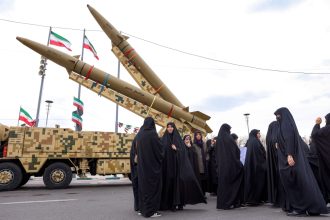JAKARTA, Sept 2 — The streets may be quieter today, but the unrest that shook Indonesia over the past week hasn’t truly ended — it’s only simmering below the surface.
In recent days, what started as protests over lawmakers’ lavish perks turned deadly, with at least six lives lost and 20 people still unaccounted for. The spark? A video of police officers running over a young delivery driver, Affan Kurniawan, became the last straw for a population already stretched thin.
The government was quick to respond. Some benefits were rolled back. Promises were made. But for many Indonesians, the damage runs deeper — it’s not about perks anymore. It’s about pain.
South-east Asia’s biggest economy may be posting strong growth figures, but ask the average person on the street and they’ll tell you a very different story. Factories are closing, layoffs are up 30%, and 42,000 jobs were lost in just the first half of the year. For people already living paycheck to paycheck, this isn’t just inconvenient — it’s devastating.
“If our economy is growing, why aren’t we feeling it?” asks Nailul Huda, economist at Celios. “Terminations are everywhere. The promises made during elections — jobs, education, security — have not materialized.”
The outrage was ignited by lawmakers receiving nearly USD $3,000 in housing allowances — almost ten times the minimum wage in Jakarta. And while leaders have walked back some of these privileges, experts say they’ve missed the point.
“The government looks out of touch,” said Huda. “People are angry because they’re being ignored.”
That anger has exploded into violence, with buildings torched in several cities and looting spreading beyond Jakarta. The protests may seem chaotic, but the frustration behind them is pointed: while politicians fund billion-dollar populist programs and sovereign wealth funds, everyday Indonesians are struggling with rising food prices and shrinking job security.
“The government said rice supply was up, but prices keep rising,” said economic researcher Jahen Fachrul Rezki. According to Statistics Indonesia, rice is now 6% more expensive than last year, adding further pressure to households already drowning in inflation.
Even in Jakarta, the number of people living under the poverty line has jumped from 362,000 in 2019 to 449,000 in 2024. This, in a city of glimmering malls and glass towers.
Prabowo’s administration has tried to shift gears — scrapping plans to raise VAT for most goods and offering damage control — but the pain is already baked into the public psyche.
Delivery riders like Affan, who represent the lifeblood of the gig economy, are working harder for less. Longer hours. Pay cuts. No social security. His death was more than an accident — it was a symbol.
“This isn’t going away anytime soon,” said political analyst Ray Rangkuti. “You can calm the protests today, but if the root causes remain — inequality, unemployment, political disconnect — then it’s only a matter of time before the streets are full again.”
The message from the people is clear: economic figures on paper mean little when survival is still a daily battle.








